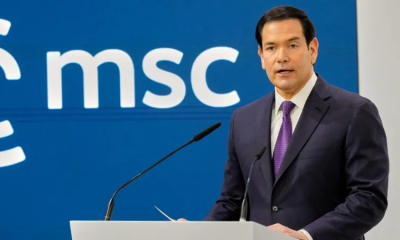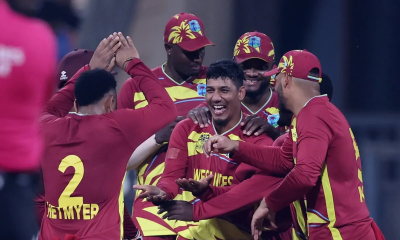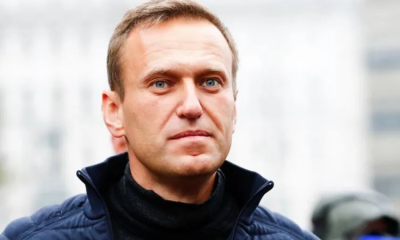News
SJB accepts SLPP’s A’pura challenge
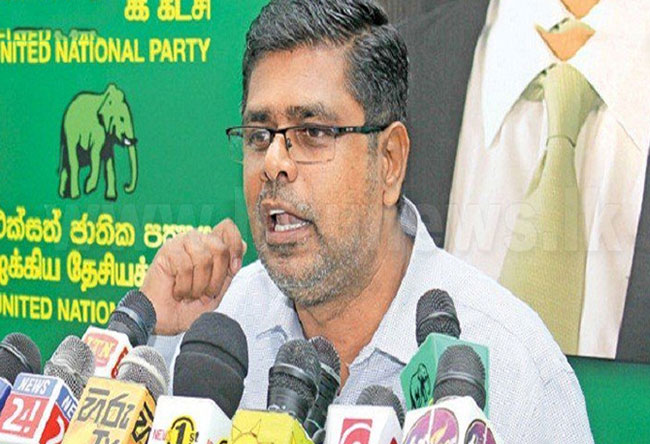
‘Hold LG polls as previously scheduled for March’
By Shamindra Ferdinando
Top Samagi Jana Balavegaya (SJB) spokesperson Mujibur Rahuman says that Wednesday’s SLPP propaganda rally in Anuradhapura had contradicted their much disputed claim the Local Government polls couldn’t be held due to the threat still posed by Covid-19 epidemic.
Pointing out that the SLPP has launched a countrywide campaign regardless of repeated warnings that such gatherings could be super spreader of Covid-19, lawmaker Rahuman said therefore LG polls could be held as scheduled.
“We are contemplating seeking the Election Commission’s response to the ruling party’s Anuradhapura move,” the Colombo District MP told The Island.
Referring to the recent issuance of a gazette regarding the postponement of the LG polls previously scheduled to be held by the third week of March, 2022, lawmaker Rahuman challenged the SLPP to reverse it.
Now that Premier Mahinda Rajapaksa, in the presence of President Gotabaya Rajapaksa, at the Anuradhapura rally, had declared that the government was ready to face the Opposition challenge, the LG polls could be re-scheduled, he said.
Minister Janaka Bandara Tennakoon handles Provincial Council and Local Government portfolio in the absence of State Minister Roshan Ranasinghe who is overseas.
Lawmaker Rahuman said that State Minister Ranasinghe was on record as having said that Covid-19 epidemic had compelled them to postpone elections. Against the backdrop of the Anuradhapura rally, the government couldn’t skip scheduled LG polls on the false pretext of Covid-19 threat, the former UNPer said.
The Island sought an explanation from Chairman of the Election Commission Attorney-at-Law Nimal Punchihewa as regards the postponement of LG polls citing Covid-19 threat. Civil society activist Punchihewa emphasized that the gazette issued in that regard didn’t give any specific reason for the polls postponement. Punchihewa said that the EC was ready to conduct the election depending on the government decision. Responding to another query, Punchihewa said that postponement of polls was in line with the relevant constitutional provisions.
Lawmaker Rahuman said that the SLPP quite conveniently failed to address any of the contentious issues -ranging from ruination of Maha season due to hasty ban on fertilizer and agro-chemicals and the growing foreign currency crisis that had caused countrywide shortage of essential items, including medicine.
He pointed out that the absence of any of the ministers representing constituent parties of the SLPP indicated that recent issues, such as a section of the cabinet challenging the government in the Supreme Court over Yugadanavi deal as well as sharp differences over the economic crisis had affected the ruling coalition. Senior SLFPer Minister Nimal Siripala de Silva’s declaration against the move to tax ETF and the EPF couldn’t have happened at a worse time, the SJB MP said.
The SJB spokesperson said that cabinet minister Udaya Gammanpila’s admission that the country is in a debt trap contradicted the current dispensation’s stand on the present crisis. The government recently stripped Susil Premjayantha of his ministerial portfolio for criticizing the SLPP’s agriculture policy, MP Rahuman said. How would they tackle ministers Gammanpila, Weerawansa, Vasudeva Nanayakkara and now Nimal Siripala de Silva? MP Rahuman asked.
The government parliamentary group comprises145 lawmakers with the main constituent having 117 members. The second and the third largest political parties are the SLFP (14 members) and the NFF (??????members), respectively.
Lawmaker Rahuman said that if the SLPP was confident it could reverse its decision and pave the way for LG polls. However, if the SLPP continued to avoid LG polls on the false pretext of the covid-19 threat, it would underscore the crisis the government was in.
“Let the electorate decide,” the MP said, adding that the SJB remained confident of attracting the vote. He also dismissed claims of turmoil within the SJB.
Of the 54 member SJB group in Parliament, several have voted with the government on two controversial votes-on the 20th Amendment on Oct 2020 and the Colombo Port City Economic Commission Bill in May 2021.SJB dissidents ensured 2/3 majority for the government on both occasions.
MP Rahuman said that though the SLPP boasted of having a 2/3 in Parliament, it couldn’t have at least leaders of the constituent parties at the Anuradhapura meeting. “That is the reality. Their much touted 2/3 didn’t reflect in the current political environment,” the former UNPer said.
Latest News
Landslide Early Warnings issued to the districts of Kandy and Nuwara Eliya extended
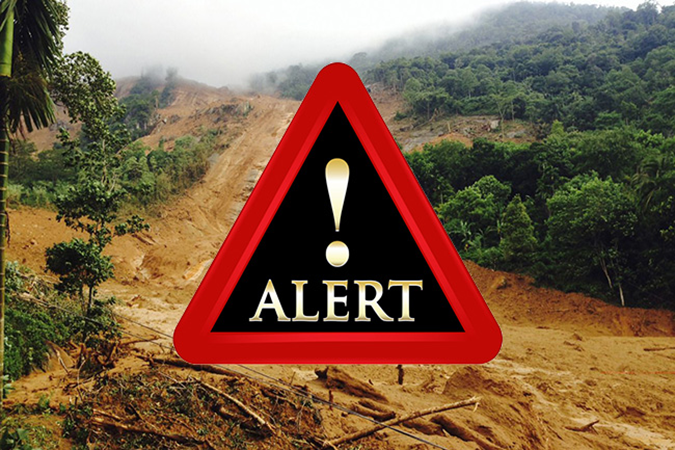
The landslide early warnings issued to the Districts of Kandy and Nuwara Eliya by the Landslide Early Warning Center of the National Building Research Organisation have been extended till 0600 hrs on 15th February 2026.
Accordingly,
The Level II [AMBER] warnings issued to the Divisional Secretaries Divisions and surrounding areas of Walapane and Nildandahinna in the Nuwar Eliya district and the
Level I [YELLOW] warning issued to the Divisional Secretaries Divisions and surrounding areas of Pathadumbara in the Kandy district have been extended.
Latest News
Advisory for Severe Lightning issued to the Western, Sabaragamuwa and Southern provinces and Badulla and Nuwara-Eliya districts
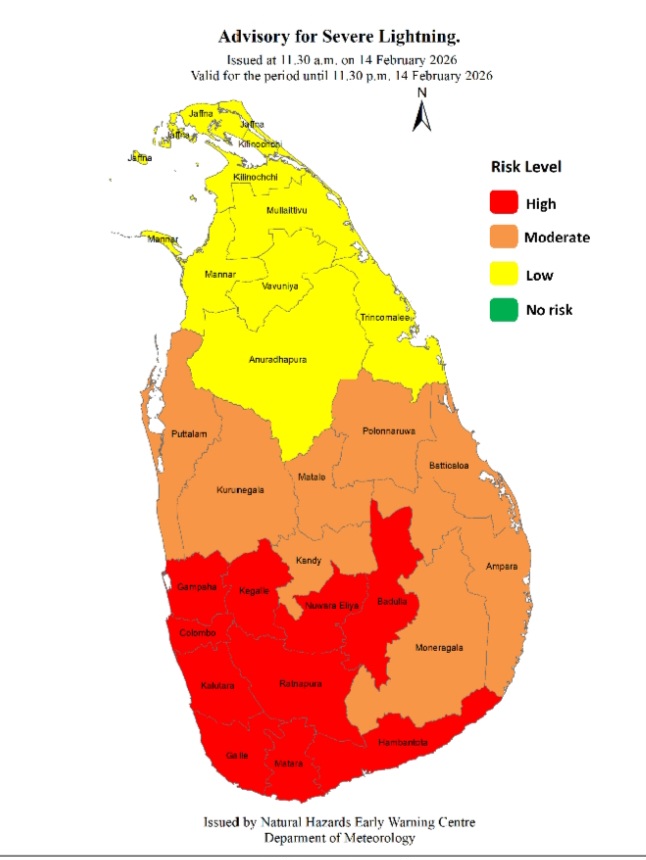
Advisory for Severe Lightning Issued by the Natural Hazards Early Warning Centre at 11.30 a.m. 14 February 2026 valid for the period until 11.30 p.m. 14 February 2026
Thundershowers accompanied with severe lightning are likely to occur at some places in the Western, Sabaragamuwa and Southern provinces and in Badulla and Nuwara-Eliya districts after 1.00 p.m. There may be temporary localized strong winds during thundershowers.
The General public is kindly requested to take adequate precautions to minimize damages caused by lightning activity.
ACTION REQUIRED:
The Department of Meteorology advises that people should:
Seek shelter, preferably indoors and never under trees.
Avoid open areas such as paddy fields, tea plantations and open water bodies during thunderstorms.
Avoid using wired telephones and connected electric appliances during thunderstorms.
Avoid using open vehicles, such as bicycles, tractors and boats etc.
Beware of fallen trees and power lines.
For emergency assistance contact the local disaster management authorities.
Latest News
Teacher recruitment examinations will be conducted in accordance with the relevant court decisions – PM
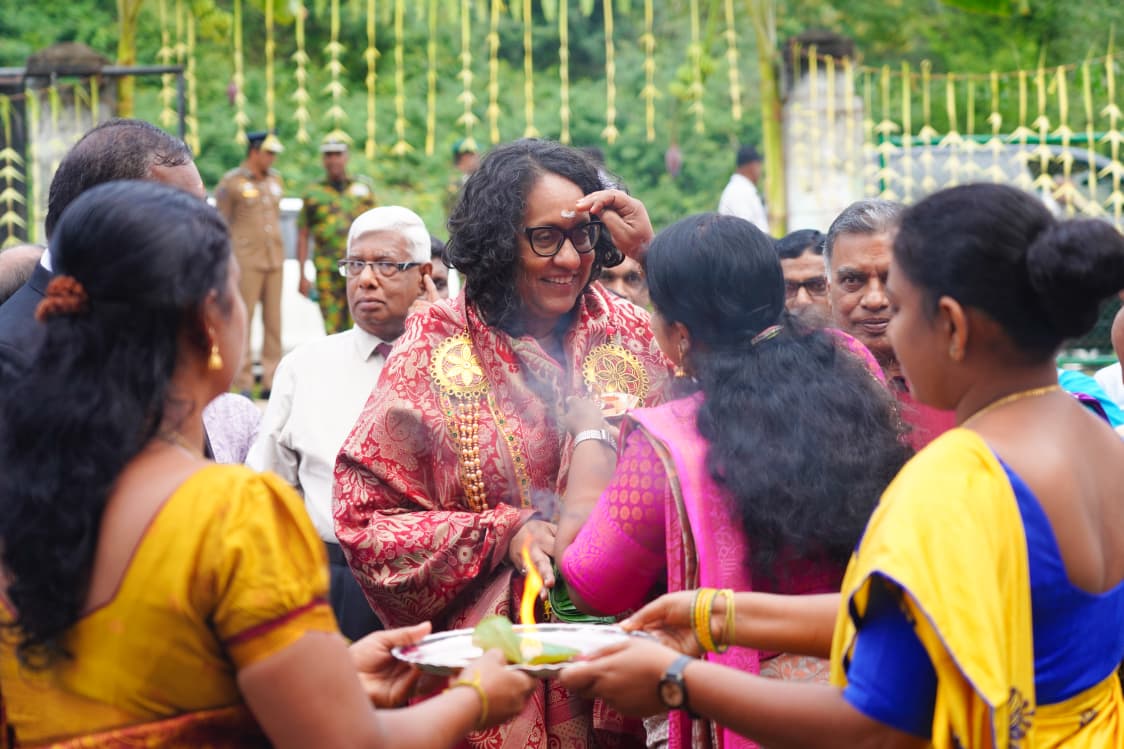
Prime Minister Dr. Harini Amarasuriya stated that the forthcoming two teacher recruitment examinations will be conducted in accordance with the relevant court decisions pertaining to the ongoing legal proceedings and further noted that, taking into consideration the requests received, steps have been taken to make a request to Court’s approval to revise the conditions of the effective date of degree completion.
The Prime Minister made these remarks while addressing a meeting held at Monaragala Royal College to brief education authorities of the Monaragala District on the new education reforms.
Under the new education reforms, Smart Boards will be provided to 132 schools in the Monaragala District as part of the program to equip secondary schools with modern technology. As a symbolic step under this initiative, Smart Boards were presented to 10 secondary schools under the Prime Minister’s patronage. This program is being implemented with the intervention of the Digital Task Force operating under the Prime Minister’s Office. It was also emphasized that a new digital policy, formulated with special attention to child protection, will be introduced in April.
As part of her visit to the Monaragala District on the 13 th of February, the Prime Minister observed the implementation of the new learning methodologies introduced for Grade One under the new education reforms. She visited Kumbukkana Sri Shanmugam Tamil Maha Vidyalaya and Maduruketiya Maha Vidyalaya in Monaragala to observe the educational activities of Grade One students.
Considering the increase of student numbers and the development of infrastructure facilities, the Prime Minister also approved a proposal submitted by the School Development Society to rename Maduruketiya Maha Vidyalaya as Monaragala Dharmaraja Maha Vidyalaya.
Teachers briefed the Prime Minister that the new education system, supported by revised workbooks and activity-based learning methods, has proven to be effective, with students participating enthusiastically.
Addressing education officials further at the meeting held at Monaragala Royal College, the Prime Minister stated:
“Although this will not provide a complete solution to the existing teacher vacancies, these examinations can offer considerable relief. According to the Court’s previous determination, the effective date of degree completion had been set as 30.06.2025. However, considering numerous requests and following the cabinet approval we have sought Court’s consent to revise this date. We will act in accordance with the decision granted.
Funds allocated for school infrastructure must be utilized transparently and in line with proper planning, and progress must be reported accordingly. We cannot move forward by dividing ourselves along national, provincial, rural, or urban lines. As education authorities, you must make swift and accurate decisions based on correct data.
Further, discussions are already underway within the Piriven Committee of the Ministry of Education to develop Piriven education and to address the issues faced by Piriven teachers.”
The event was attended by the members of the Maha Sangha, Uva Province Governor Attorney-at-Law Kapila Jayasekara, Deputy Minister of Trade and Commerce R.M. Jayawardhana, Member of Parliament Ajith Agalakada, Uva Provincial Education Secretary Nihal Gunarathne, and several officials from the education sector.
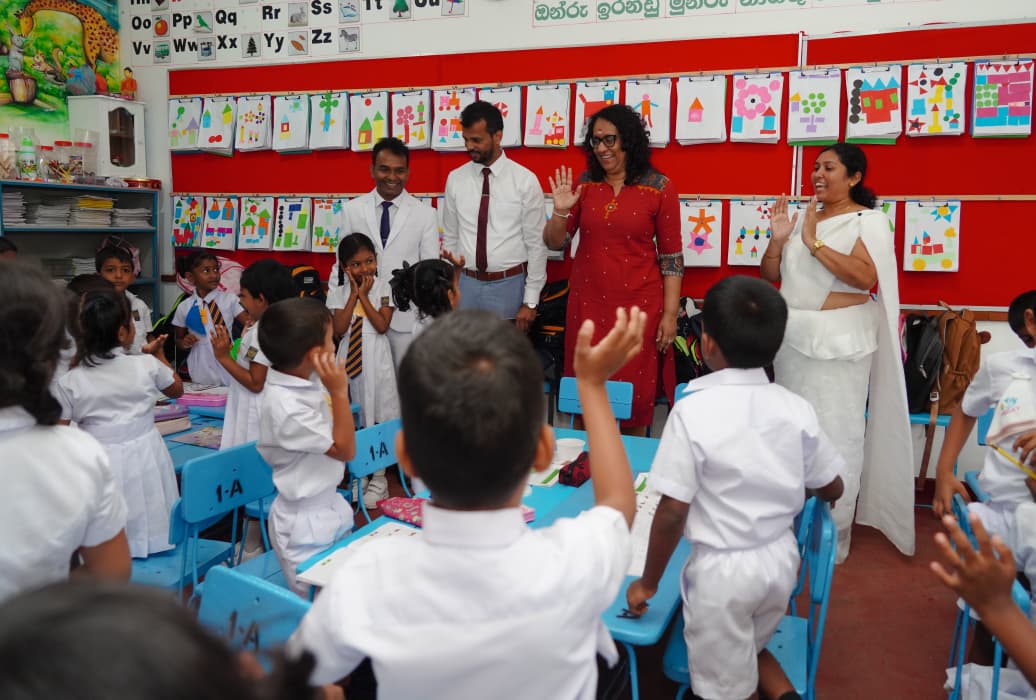
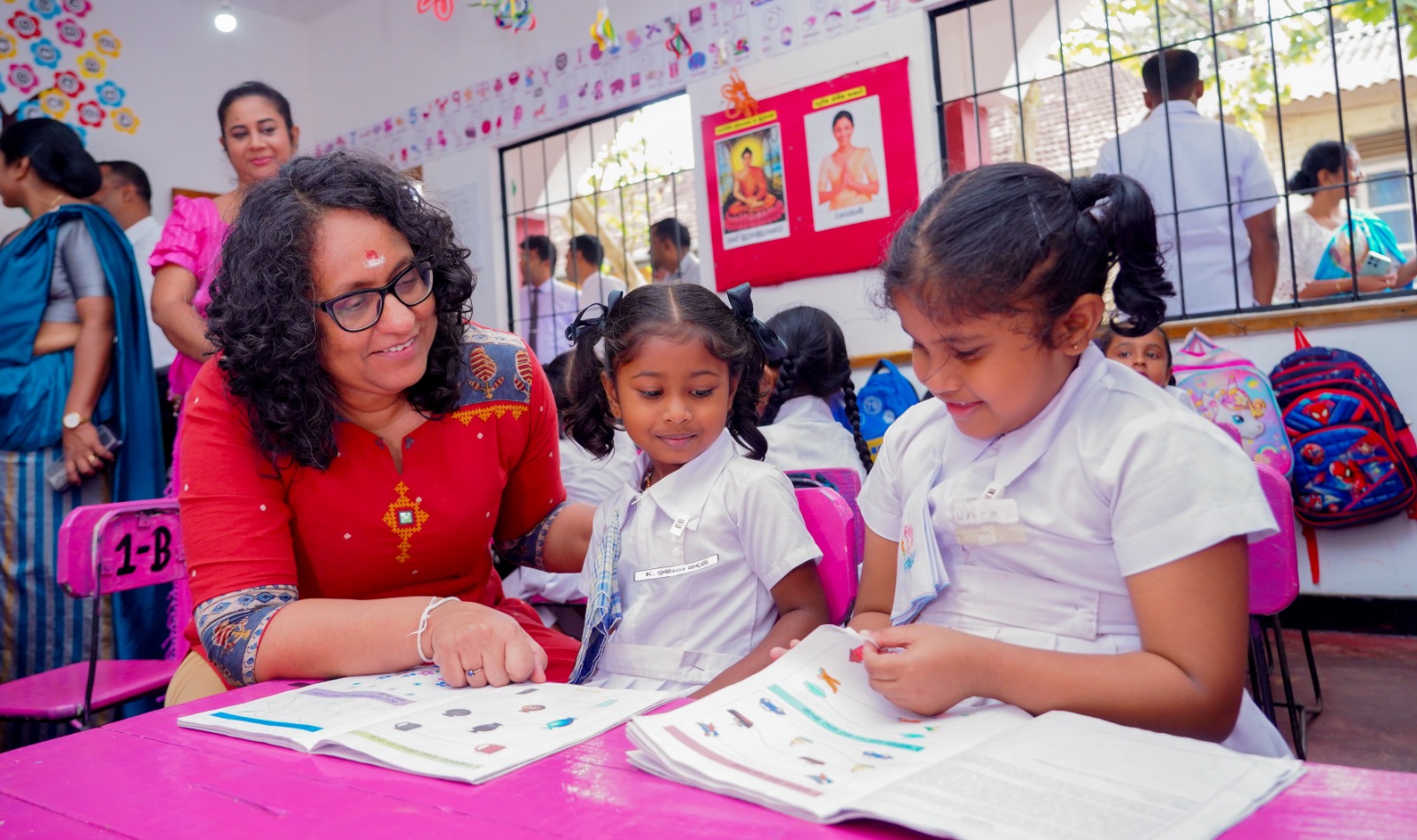

[Prime Minister’s Media Division]
-

 Features7 days ago
Features7 days agoMy experience in turning around the Merchant Bank of Sri Lanka (MBSL) – Episode 3
-

 Business7 days ago
Business7 days agoRemotely conducted Business Forum in Paris attracts reputed French companies
-

 Business7 days ago
Business7 days agoFour runs, a thousand dreams: How a small-town school bowled its way into the record books
-

 Business7 days ago
Business7 days agoComBank and Hayleys Mobility redefine sustainable mobility with flexible leasing solutions
-

 Business4 days ago
Business4 days agoAutodoc 360 relocates to reinforce commitment to premium auto care
-

 Midweek Review4 days ago
Midweek Review4 days agoA question of national pride
-

 Opinion3 days ago
Opinion3 days agoWill computers ever be intelligent?
-

 Midweek Review4 days ago
Midweek Review4 days agoTheatre and Anthropocentrism in the age of Climate Emergency


